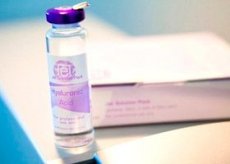New publications
France has banned hyaluronic acid injections for breast augmentation
Last reviewed: 30.06.2025

All iLive content is medically reviewed or fact checked to ensure as much factual accuracy as possible.
We have strict sourcing guidelines and only link to reputable media sites, academic research institutions and, whenever possible, medically peer reviewed studies. Note that the numbers in parentheses ([1], [2], etc.) are clickable links to these studies.
If you feel that any of our content is inaccurate, out-of-date, or otherwise questionable, please select it and press Ctrl + Enter.

The French Agency for the Sanitary Control of Health Products (Afssaps) has banned the use of hyaluronic acid injections for breast augmentation, AFP reports. The decision is explained by the fact that the presence of hyaluronic acid in breast tissue can complicate the diagnosis of malignant tumors.
The only product approved for use in France for breast augmentation in this way is Macrolane, manufactured by the British company Q-Med. Breast augmentation with silicone injections was banned in France back in 2000.
As noted in the Afssaps press release, the decision to ban the use of hyaluronic acid for breast augmentation is being taken as a precautionary measure, despite the lack of data on specific risks associated with such procedures. However, the use of injections of this substance in other cosmetic procedures is still permitted.
The conclusion that the introduction of hyaluronic acid may complicate X-ray examinations and self-examinations for the diagnosis of breast tumors was reached in a study initiated in France in 2008.
According to Afssaps, about 2,500 women in France have undergone breast augmentation with hyaluronic acid injections. The supervisory agency acknowledges that no serious health consequences associated with the use of this method have been identified during three years of monitoring these patients.
Hyaluronic acid decomposes in the human body, so the effect of breast enlargement with this substance lasts from 18 months to 2 years, after which repeated injections are required.

 [
[